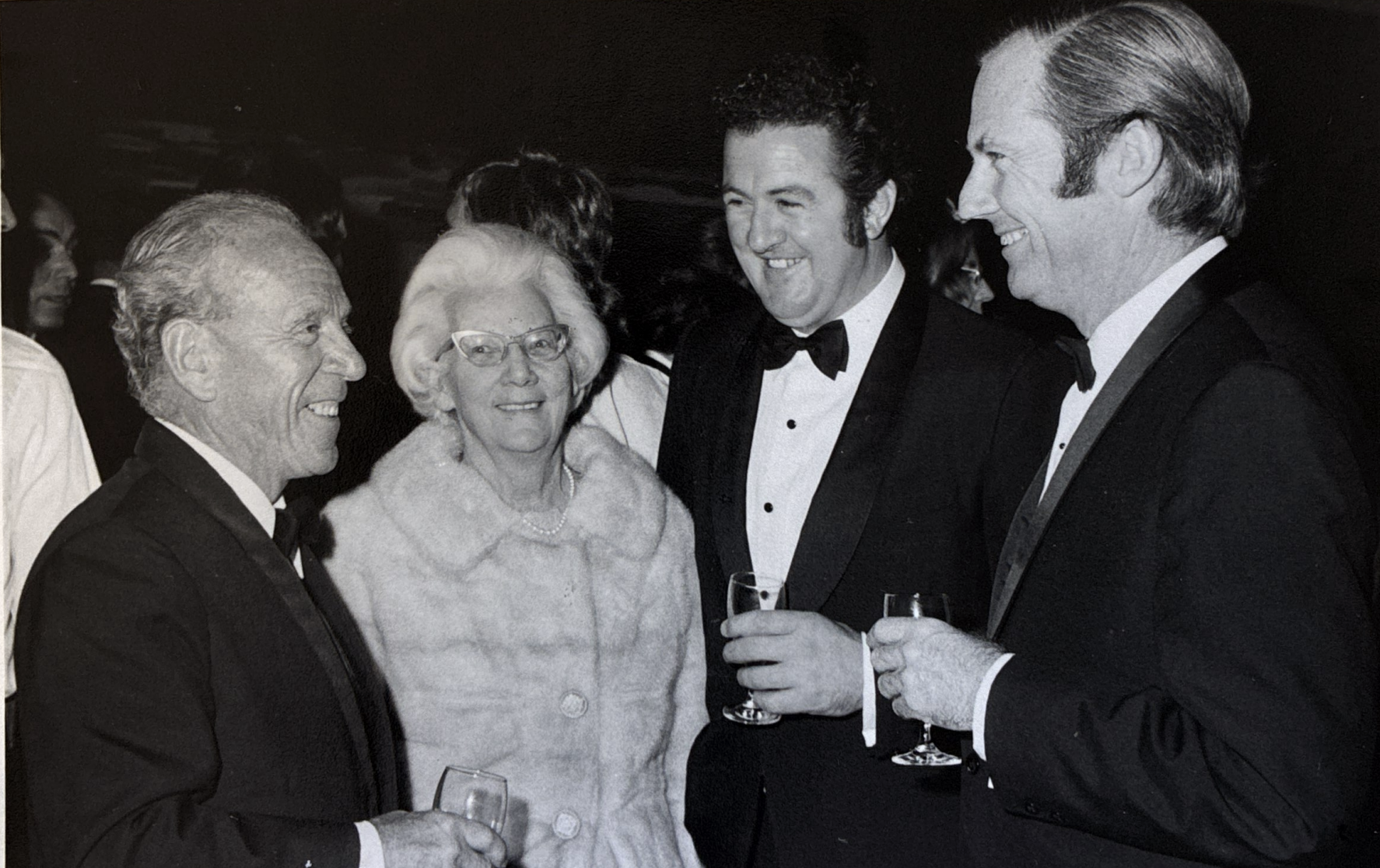Murdoch, the Dismissal and my job in Japan
November 8, 2025
Rupert Murdoch played a critical role in the Dismissal. He knew how to bring pressure on Kerr and provided strong support for Malcolm Fraser.
Murdoch was always very interested in politics. He discussed it with me many times when I worked for him including his interest in securing endorsement as a political candidate, presumably for the National Country Party. He was quite close personally to Jack McEwen, the leader of the NCP
I was also aware of Murdoch’s interest in Kerr. After a lunch with Kerr at News Corp long before the Dismissal, Rupert was impressed by Kerr who was then a Judge of the Commonwealth Industrial Court. Rupert commented, perhaps half in jest, that Kerr would be a good editor of The Australian.
Murdoch often held soirees at Cavan with editors and managers at his rural retreat outside Canberra. On one of those soirees, 12 months before the dismissal, he invited Kerr. It was late in the afternoon and Kerr, as was his custom, had had a few drinks by the time he got to Cavan.
Ian Fitchett, the doyen of the press gallery and the chief correspondent of the Sydney Morning Herald, was present at that Cavan meeting in late 1974. Fitchett told me that Murdoch had asked Kerr to speculate on the possibilities if the Opposition refused Supply. This was then a topical issue as the Coalition had contemplated refusing supply in late 1974. But it backed off.
According to Fitchett, Kerr outlined a range of options that he might consider. This was very improper of Kerr. Murdoch tucked this away for later consideration and action as his newspapers conducted a campaign that the governor-general must act in the lead-up to the Dismissal.
Just as importantly, Murdoch was a good judge of people’s strengths and weaknesses. He knew how and when to apply pressure to Kerr.
The Murdoch papers played a major role in the events leading to the Dismissal. His papers focused very clearly and directly on Kerr’s vulnerability as Murdoch knew them so well after that detailed briefing Kerr gave him 12 months before at Cavan. The headline of 20 October 1975 in The Australian was “Fraser says Kerr must sack Whitlam”. Then there was a three-part editorial series entitled “Stalemate and Sir John” focusing on Kerr and how he should act. The last in the series was headed ‘The decision rests with Kerr”. Murdoch was putting all the heat that he possibly could on Kerr. Feature writers of The Australian referred to Kerr as the “The man in the middle”.
Kerr objected to Whitlam about the vituperative and the high-pressure way that Murdoch was mounting pressure on him. How ironic that Kerr was looking for help from Whitlam only days before he dismissed him.
Following that meeting with Kerr at Cavan in late 1974, Murdoch had a meeting with the American ambassador, Marshall Green. At that meeting, Murdoch outlined to Green the likelihood that the Whitlam Government would be dismissed in future. That information was sent by cable to the US State Department and was disclosed subsequently in WikiLeaks by Julian Assange. It did not come to attention until much later because search engines did not access the story as Murdoch was spelt with a K rather than an H.
I had lunch on 7 November 1975 at what is now The Pantry at Manuka with Rupert Murdoch and Ken Cowley. Ken ran Rupert’s Australian operations. I had a few words to say about the coverage of The Australian and the News Group in the Supply crisis. They were stoppages by journalists at News Limited for the partisan way in which Murdoch was using his papers. I told him I had cancelled my subscription to The Australian. That didn’t put him off his lunch.
In my record of 11 December 1975 about that lunch with Murdoch five weeks earlier I wrote, “Rupert Murdoch told many of his friends that Mr Fraser had informed him that the Governor-General had given him (Fraser) an assurance that if he hung on long enough there would be a general election before Christmas. He told me at that lunch… that he was quite certain that there would be an election before Christmas and an election specifically for the House of Representatives". I suggested him to him that a half Senate election was the only possibility. He rejected this view and said that he believed there would certainly be a House of Representatives election before Christmas and that he would be staying in Australia until this occurred. He was very confident of the outcome of any election and even mentioned to me the position to which I might be appointed in the event of a likely Liberal victory, Ambassador to Japan.
At that time, Rupert and I were quite close personally. He even cooked my breakfast and drove me to church when I stayed with him and Anna in the Cotswolds. Murdoch was showing concern, just before the Dismissal, for my future. I had no need to worry as Fraser had agreed with him that I would be appointed ambassador to Japan. That happened 12 months later. Rupert would not have known that, except directly from Fraser.
Murdoch denies my account of our lunch. I stand by it. He was intimately involved with Fraser in the Dismissal. And my Tokyo appointment.
He also denied that after the 1972 election he asked me to put to Whitlam that he be appointed Australian high commissioner to the UK. Whitlam refused.
I stand by that story also.
Tomorrow: What role did the CIA play?


